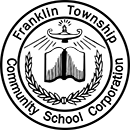Search Policies Based on Keyword
B225 – BOARD MEETINGS
All meetings of the School Board of Franklin Township School Corporation shall comply with Indiana statutes, including notice and final actions in accordance with the Open Door Law.
Regular Board Meetings
In January, the regular Board meeting will occur immediately following the organizational meeting.
Regular meetings of the Board will begin at [time] and will be held in the _____ Room at the [Name of Building if applicable, i.e., Administration Building], [Address, City, State], unless a different time or location is designated by a majority of the Board.
Three members of the Board shall compose a quorum.
All regular meetings are open to the public except when the Board is in executive session, as provided under Indiana law.
Electronic Participation and Voting
Members of the School Board may participate in School Board meetings though they are not physically present by participating through allowable electronic means. Allowable electronic means must meet two requirements: 1) it shall allow participating members to simultaneously communicate with each other, and 2) it shall allow the public to simultaneously attend and observe the meeting (not including executive sessions).
Any School Board member who participates by allowable electronic means shall be considered present for purposes of establishing a quorum and may participate in any final action through a vote so long as that member can be both seen and heard. If a Board member wishes to participate by electronic means that does not meet the definition of allowable electronic means (typically because it does not permit observation), the Board member may do so but may not participate in any final action through a vote and will not be considered part of the quorum. All votes taken during a meeting with electronic participants must be taken by a roll call vote, and at least fifty percent (50%) of the School Board members must be physically present at the meeting.
A member of the School Board may not attend more than fifty percent (50%) of the School Board’s meetings in a calendar year by electronic means, and while a member may attend two (2) consecutive meetings (a “set” of meetings) by electronic communication, a member shall physically attend at least one (1) meeting between sets of meetings attended by electronic communication.
If a member of the School Board plans to attend a meeting by electronic means of communication, he or she must notify the School Board President or Secretary within 48 hours before the meeting so that arrangements may be made of the School Board member’s participation by electronic communication.
A member of the School Board may not participate by electronic communication if the School Board is attempting to take final action to do one of the following at the meeting: 1) adopt a budget; 2) make a reduction in personnel; 3) initiate a referendum; 4) establish or increase a fee; 5) establish or increase a penalty; 6) use the School Board’s eminent domain authority; 7) establish, raise, or renew a tax.
If a disaster emergency is in effect for all or part of the area within the School Board’s jurisdiction, the members of the School Board are not required to be physically present at a meeting: (1) if meeting in person would present an imminent risk to the health or safety of the members of the public and the School Board who attend the meeting because of the particular danger, threat, or emergency conditions that are the basis for the declaration of the disaster emergency; and (2) one (1) or more schools within the jurisdiction of the School Board are closed at the time of the meeting because of the particular danger, threat, or emergency conditions that are the basis for the declaration of the disaster emergency.
Executive Session
The School Board reserves the right as permitted by and within the constraints of state law to sit in executive session. Such sessions are called by the President or Superintendent for discussion only and final action must be taken at a meeting open to the public.
Executive sessions shall be closed to the public. In keeping with the confidential nature of executive sessions, no member of the Board shall disclose the content of discussions that take place during such sessions. Indiana’s Access to Public Records Act prescribes criminal penalties for the disclosure of information classified as confidential by state statute, which includes executive session records or information derived from such records.
The Superintendent shall attend all executive sessions except those which pertain to his or her contract or when mutually agreed upon. The Board or Superintendent may invite staff members or others to attend such sessions.
Special Board Meetings
The Board president or Superintendent may call a special Board meeting between regular Board meetings pursuant to notices required by law.
All Special meetings shall be open to the public, but no action shall be taken on items other than those related to the agenda and purpose of the meeting.
I.C. 20-26-4-3
I.C. 5-14-1.5-1 et. seq. – Open Door Law
I.C. 5-14-1.5-3.5
I.C. 5-14-1.5-3.7
Franklin Township Community School Corporation
Adopted: 3/23/09
Revised: 12/16/13
Revised: 8/23/21
Revised: 02/28/22
Revised: 07/25/22

